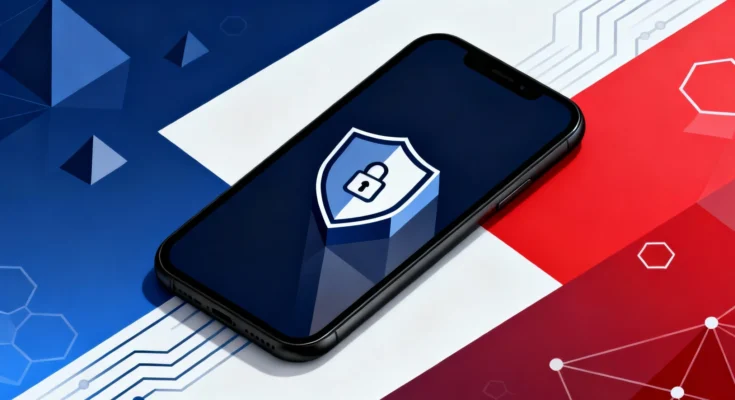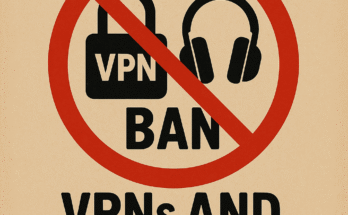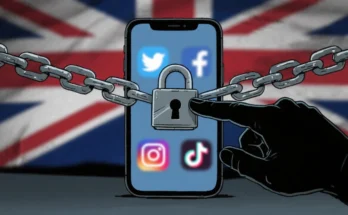Free Mobile has rolled out a built‑in “mVPN” at no extra cost for eligible subscribers—stoking debate over France’s age‑verification rules for adult sites. Critics say it could help users bypass checks; Free says parental controls still apply. Here’s what the move means for privacy, policy, and enforcement.
Free Mobile’s new “mVPN” reignites France’s age‑verification debate: What it is, who gets it, and why regulators are watching
France’s fourth-largest telecom operator, Free (Iliad Group), has launched a no‑cost VPN integrated into eligible mobile plans, sparking a national debate over whether the feature could undermine France’s new age‑verification regime for adult websites.
According to reporting in The Connexion, Free introduced “Free mVPN,” a VPN service built into its mobile network that subscribers can activate for 12-hour sessions via the Free app or subscriber portal. The feature is available at no extra cost for Forfait Free 5G and Série Free customers, and the company positions it as a way to improve privacy and security online. However, critics say it can also help users spoof their location and bypass age checks on pornographic websites—a point that Free’s founder Xavier Niel appeared to acknowledge with a wry “par hasard” (“by chance”) reply on social media when the capability was noted publicly.
What Free is offering
- Name and scope: “Free mVPN,” integrated at the network level.
- Availability and price: Included at no added cost for specific mobile plans (Forfait Free 5G and Série Free).
- Activation: One‑click in the Free app or subscriber area; sessions last 12 hours and auto‑deactivate.
- Positioning: Privacy, encryption, protection from malicious content, and geolocation masking—standard VPN benefits—without requiring a third‑party VPN subscription.
Free has reportedly stressed that parental controls remain available on its mobile contracts and continue to function even when a VPN is active, responding to concerns raised in French media coverage.
Why this matters now in France
- France finalized strict age‑verification standards for adult sites in 2025, requiring platforms to implement independent age checks and to shield explicit content until verification is complete. Major adult platforms, including Pornhub (Aylo), have blocked access in France in protest, arguing the approach jeopardizes user privacy and doesn’t protect minors effectively.
- France’s media and online regulator, Arcom, is the key enforcement body. A French Socialist Party politician has reportedly referred Free’s mVPN offer to Arcom, citing risks that minors could more easily circumvent the law if operators themselves offer VPN tools.
The broader context: porn blocks and age checks in Europe and the US
- France: Pornhub and other Aylo sites are blocked for French users as a protest against the country’s age‑verification mandate. Aylo argues site‑based age checks are privacy‑eroding and ineffective; it prefers device‑level solutions administered by OS vendors (Apple, Google, Microsoft).
- EU/DSA pressure: Separately, the EU has opened DSA probes into several adult sites over compliance issues, increasing regulatory scrutiny in Europe.
- UK: Ofcom’s implementation under the Online Safety Act has triggered a surge in VPN uptake as age checks roll out, illustrating the “cat-and-mouse” dynamic between enforcement and circumvention tools
- US: Age‑verification laws in numerous states have led Aylo to block access regionally, while digital rights groups warn that the patchwork of mandates can chill speech and push users toward riskier websites. The EFF emphasizes that VPNs aren’t a cure‑all and don’t guarantee anonymity, given other tracking vectors and the need to trust the VPN provider.
Could Free’s mVPN undermine age‑verification?
- Practically speaking, VPNs can mask IP‑based geolocation. Where age‑gating relies on geographic rules or regional compliance, a VPN may let users appear to be connecting from a different country, complicating enforcement—this is one reason critics have flagged Free’s move.
- But VPNs are not a silver bullet. Many sites combine IP checks with other signals (device, cookies, payment rails, third‑party verifiers), and governments are iterating on enforcement. Privacy advocates also warn that low‑quality or free VPNs can log data or leak identifiers, undermining user privacy—the very opposite of what many people expect from a VPN.
Legal status of VPNs in France
VPN use is legal in France when not used for unlawful purposes (e.g., copyright infringement, hacking). French government guidance has historically encouraged choosing reputable, paid VPNs to avoid malware and data harvesting risks—something to keep in mind even when an ISP offers a built‑in option.
What to watch next
- Arcom’s response: Whether France’s regulator takes action or issues guidance regarding operator‑provided VPNs and minor protections.
- Carrier moves: If rivals follow Free with network‑integrated VPNs, privacy‑oriented features could become a competitive differentiator—tightening the policy debate.
- Standards evolution: France’s age‑verification standards and EU‑level DSA enforcement may push sites toward different compliance models, potentially including device‑level or privacy‑preserving verification methods that reduce exposure of sensitive IDs.
- Consumer behavior: As seen in the UK, stricter checks can drive spikes in VPN adoption, but also shifts in traffic to non‑compliant or lower‑safety sites, with broader online safety implications.
Bottom line for VPN users in France
Free’s mVPN makes VPN access frictionless for eligible subscribers and is part of a larger trend where privacy tools become mainstream—and politicized. Whether it meaningfully weakens France’s age‑verification regime will depend on how regulators and platforms adapt. For users, the usual advice still applies: understand what a VPN can and cannot do, choose trustworthy providers, and be mindful that bypassing regional restrictions may carry legal and policy risks depending on the jurisdiction and the site involved.
Sources include:
The Connexion – coverage of Free’s mVPN launch, criticism, and Arcom referral
EFF – Why VPNs are not a comprehensive solution to age‑verification mandates


